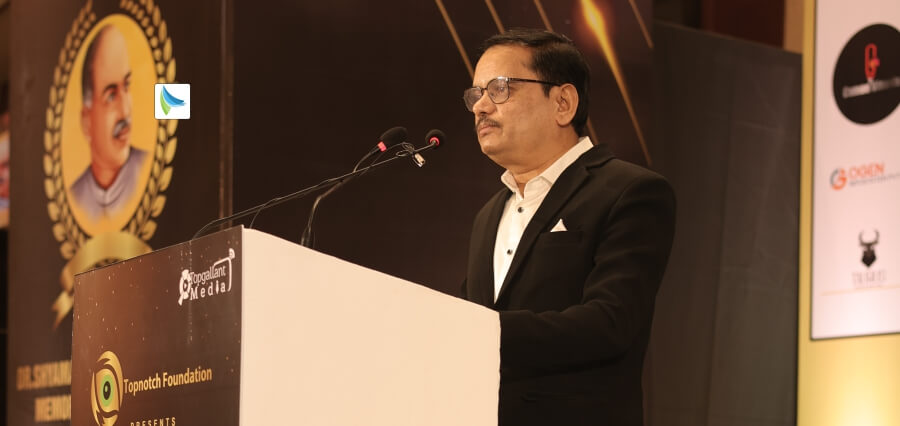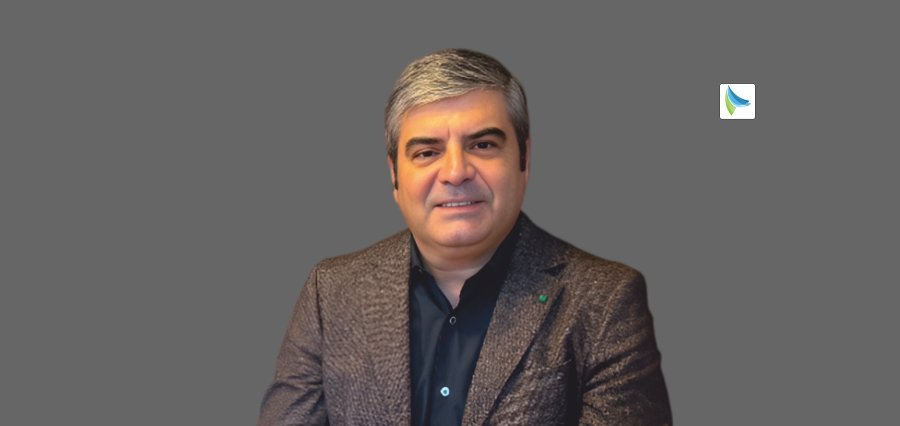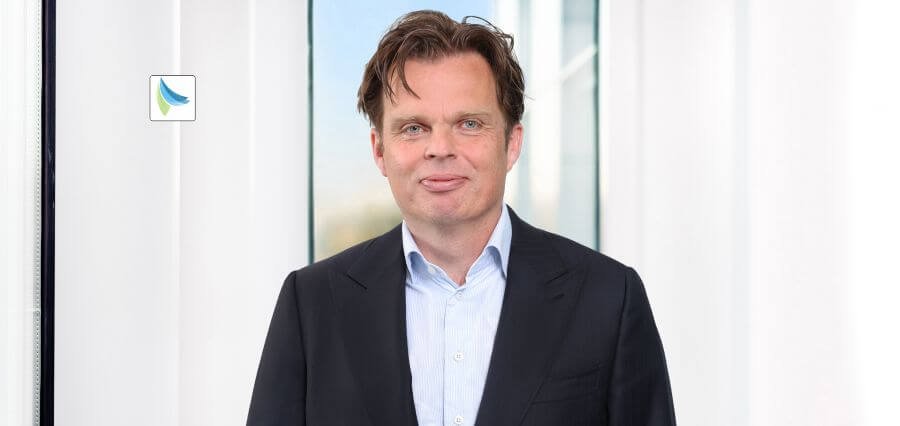A story of conviction converted into creativity. One name that resonates with it is Dr. Prakash A. Sulakhe. His journey took him from the sleepy streets of Beed to the vanguard of India’s educational technology revolution. His trajectory displays a unique fusion of patriotism and purpose-driven creativity, shaped by ideals of self-reliance, discipline, and service. A young engineer’s dissatisfaction with the growing disconnects between academic theory and real-world application turned into a lifelong quest to reform engineering education in India.
As the Director of CAD-MECH Engineering Pvt. Ltd., he is creating more than just a business; he is developing a movement in which learning meets action. Under his direction, the firm is developing as a pioneer in indigenous automation and mechatronics training systems, closing the skills gap that had previously hampered numerous engineering graduates. His leadership is based on three timeless principles: innovation, integrity, and impact which are the values that permeate every Smart Lab the firm installs and every student it empowers.
Dr. Sulakhe, unmoved by trends but open to change, continues to support a vision in which education drives national progress. His experience demonstrates that great entrepreneurship is about constructing futures with courage, clarity, and a strong sense of purpose, rather than chasing success.
Foundations Built on Values
Dr. Prakash Sulakhe traces his entrepreneurial DNA back to his upbringing in Beed, where discipline, hard work, and community service shaped his worldview. His early association with the Rashtriya Swayamsevak Sangh instilled in him a conviction that personal achievement must serve a larger national purpose. These formative experiences created an internal compass that would later guide every major decision at CADMECH.
“I learned early that real success lies in contributing to the nation, not just achieving personal growth,” he reflects. This philosophy distinguishes him from entrepreneurs who view social impact as an afterthought or marketing strategy. For him, national contribution forms the core business proposition itself.
When he moved to Pune to pursue professional opportunities, he encountered a revelation that would define his career. Engineering colleges across India were producing graduates with impressive theoretical knowledge but limited practical competency. Meanwhile, industries increasingly demanded automation skills, robotics expertise, and hands-on experience with modern manufacturing systems. The gap between classroom learning and industry requirements had widened into a chasm.
Rather than accepting this disconnect as an inevitable feature of India’s education landscape, he saw an opportunity for systemic intervention. He envisioned a platform where education would meet innovation, where students could interact with the same technologies they would encounter in their careers. This vision crystallized into CADMECH Engineering Pvt. Ltd., a company built specifically to bridge the theory-practice divide.
“My journey wasn’t about changing careers, it was about changing mindsets,” he explains, summarizing the philosophical shift required to reimagine engineering education.
Building a Philosophy of Impact
CADMECH operates on three foundational principles: Innovation, Integrity, and Impact. These aren’t merely corporate buzzwords printed on motivational posters; they function as operational guidelines that inform product development, customer relationships, and team culture.
Innovation at the firm focuses on solving real educational problems rather than chasing technological novelty for its own sake. Every CNC trainer, robotics module, and mechatronics system emerges from research into how students actually learn and what skills industries actually require. The company develops 100 percent indigenous technology, a deliberate choice that aligns with both national self-reliance goals and the practical needs of Indian institutions.
Integrity manifests in the company’s approach to customer relationships. In an industry where after-sales support often disappoints and customization requests get ignored, CADMECH prioritizes transparency and long-term partnerships. Dr. Prakash Sulakhe believes that earning institutional trust requires consistent quality delivery and honest communication, especially when challenges arise.
Impact, the third pillar, defines how CADMECH measures success. While revenue and market share matter, the company evaluates its performance through a different lens: How many students gained practical skills they wouldn’t have otherwise acquired? How many institutions improved their accreditation scores through better lab facilities? How many engineering graduates entered the workforce genuinely prepared for modern manufacturing environments?
“Our work begins where others stop, we solve not just technical problems, but educational ones too,” he states, articulating the company’s distinctive value proposition.
Navigating the Challenge Landscape
Transforming a company from a startup into a nationally recognized brand requires overcoming formidable obstacles. The first challenge was psychological rather than technical. Many Indian institutions harbored an import bias, assuming that foreign-manufactured equipment inherently surpassed domestic alternatives. Convincing administrators and faculty members that Indian-made technology could match or exceed imported products demanded relentless quality focus.
CADMECH addressed this skepticism through performance rather than promises. The company invested heavily in product refinement, after-sales support, and customization capabilities. When institutions experienced CADMECH’s responsiveness and equipment reliability firsthand, word-of-mouth recommendations gradually shifted market perceptions.
The second major challenge involved cost competitiveness. Imported educational equipment often came with premium price tags that many institutions couldn’t afford, yet they expected similar feature sets from domestic manufacturers at significantly lower prices. Their company solved this equation through vertical integration housing R&D and manufacturing under one roof. This structure eliminated intermediary costs and allowed the company to offer economical products without compromising on functionality or quality.
Building a multidisciplinary team presented the third significant hurdle. Educational technology requires expertise across mechanical engineering, electronics, software development, and instructional design. The firm needed these diverse specialists to function not as separate departments but as an integrated team. Dr. Prakash Sulakhe fostered this cohesion by creating a mission-driven culture where every team member understood how their work contributed to the larger goal of transforming engineering education.
“Challenges are not roadblocks; they are checkpoints that test how badly you want your dream,” he observes, reflecting on these formative struggles.
Leadership Grounded in Purpose
Dr. Prakash Sulakhe practices a leadership philosophy centered on clarity, confidence, and ownership. He rejects command-and-control management styles in favor of empowering team members with both responsibility and autonomy. At this firm, employees receive not just tasks but context, they understand why their work matters and how it connects to institutional and student outcomes.
This approach transforms companies from a conventional company into what he defines “a mission.” Team members engage in open dialogue, pursue continuous learning, and operate within a trust-based delegation framework. When people comprehend the purpose behind their efforts, their execution quality rises dramatically.
He also emphasizes consistency over trend-chasing. While educational technology markets experience regular hype cycles around new methodologies and tools, companies focus on building timeless value, solutions that remain relevant across changing pedagogical fashions because they address fundamental learning needs.
“Leadership is about turning intent into impact, quietly, consistently, and confidently,” he summarizes, describing his operational philosophy.
Recognition and Real Impact
CADMECH has accumulated impressive credentials over the years: India’s Top Brand in Engineering Lab Manufacturing, Top Leaders in Education Technology, and various other accolades. Dr. Prakash Sulakhe appreciates these honors as validations that the company’s direction aligns with market needs and national priorities. The awards motivate his entire team and provide external credibility that facilitates new institutional partnerships.
Yet he measures success through a different metric. The feedback that truly matters comes from students who gained confidence through hands-on practice, or faculty members who can now deliver more effective practical training. These testimonials carry more weight than any trophy because they represent actual educational transformation.
CADMECH’s corporate social responsibility initiatives reflect this impact-first orientation. The company donated a complete Mechatronics Lab to the Odisha Government, not as charity but as an investment in human capital development. Dr. Prakash Sulakhe views such contributions as aligned with CADMECH’s core mission rather than separate from it.
“Awards fade, but impact echoes,” he notes, distinguishing between temporary recognition and lasting influence.
Smart Labs: Reimagining Practical Learning
CADMECH’s Smart Labs represent the company’s most comprehensive solution to engineering education’s practical deficit. These integrated ecosystems enable experiential learning that traditional classroom and laboratory setups cannot match. Instead of studying automation systems through diagrams and descriptions, students interact with actual CNC machines, sensors, actuators, and robotics modules, the same technologies they’ll encounter in industrial careers.
Smart Labs accomplish multiple objectives simultaneously. They teach technical competencies while nurturing critical thinking and creativity. They align with AICTE’s outcome-based education framework, helping institutions improve NBA and NIRF accreditation scores. They make advanced practical learning accessible not just to elite universities but also to ITIs and tier-two colleges that historically lacked such resources.
The company continuously evolves these labs by incorporating Industry 4.0 technologies. Current Smart Lab iterations integrate IoT for performance data monitoring, AR/VR for immersive simulations, and AI for predictive learning analytics. Students can visualize machine operations in three dimensions, collect live performance metrics, and experience virtual machine handling safely. VR simulators particularly benefit institutions by reducing energy consumption, equipment wear, and training costs while maintaining educational effectiveness.
“When labs get smarter, learners get stronger,” he says, encapsulating the transformative potential of properly designed practical learning environments.
Advice for Aspiring Entrepreneurs
Dr. Prakash Sulakhe offers pragmatic counsel to young entrepreneurs entering manufacturing or EdTech sectors. He emphasizes patient understanding that manufacturing success requires long-term thinking rather than quick exits. Entrepreneurs should start with manageable scope while maintaining ambitious vision, reinvesting profits into continuous innovation rather than premature expansion.
Failure, he insists, should be expected but always converted into learning. Building trustworthy teams, respecting timelines, and prioritizing quality over rapid growth create sustainable foundations. In EdTech specifically, impact matters more than user acquisition metrics or valuation multiples.
Most importantly, entrepreneurs must protect their core values. CADMECH wasn’t built on venture capital or debt financing, it grew through faith, focus, and fairness. These intangibles constitute an entrepreneur’s real capital and require fierce protection against pressures to compromise.
“Your values are your real capital protect them fiercely,” he advises, speaking from experience about the temptations that growth brings.
Vision for Tomorrow
Dr. Prakash Sulakhe envisions CADMECH becoming a global brand synonymous with innovation and integrity in educational technology. The company plans to expand its product portfolio, establish regional innovation centers across India, and develop next-generation solutions including AI-based robotics kits, digital twins, and cloud-connected labs for remote learning.
Beyond commercial objectives, CADMECH pursues a national mission: ensuring every Indian engineering student accesses hands-on, affordable, world-class training regardless of their institution’s resources or location. This democratization of quality practical education could fundamentally alter India’s technical workforce capabilities.
“CADMECH’s future is not just in machines, it’s in the minds they shape,” he declares, articulating a vision where educational technology serves as a catalyst for national transformation.
A Testament to Purpose-Driven Entrepreneurship
Dr. Prakash A. Sulakhe’s journey from Beed to national prominence illustrates how vision, values, and innovation converge to create transformative enterprises. His story challenges conventional entrepreneurial narratives that prioritize rapid scaling and exit strategies over sustained impact and indigenous capability building.
Through CADMECH Engineering Pvt. Ltd., he demonstrates that Make in India extends beyond manufacturing—it encompasses mindset shifts about what Indian enterprises can achieve and how education can evolve. As Smart Labs proliferate across Indian institutions, they carry forward Dr. Prakash Sulakhe conviction that every student deserves access to practical learning that genuinely prepares them for industrial careers.
In an era of technological disruption and educational reform, leaders like Dr. Prakash Sulakheremind us that the most profound innovations often emerge not from chasing trends but from addressing fundamental human needs with integrity, patience, and unwavering commitment to national progress.














